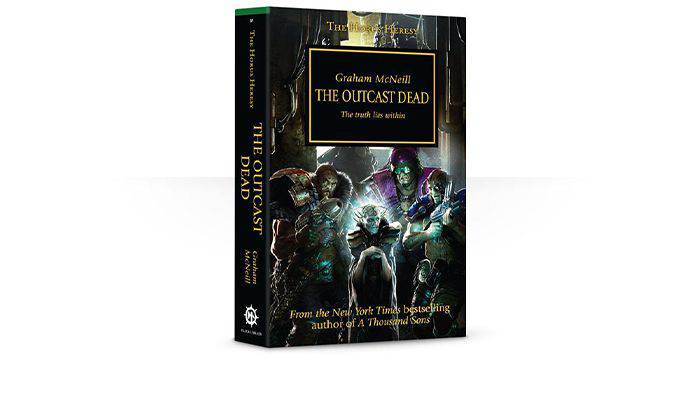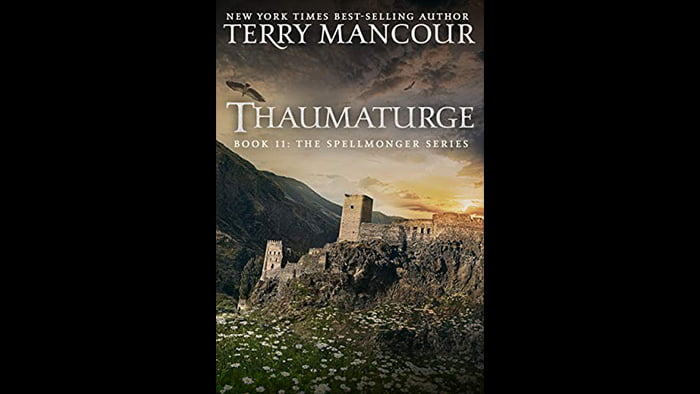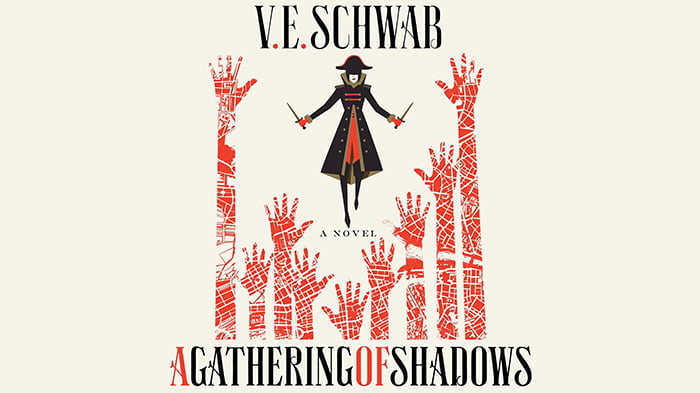Till Summer Do Us Part: When Fake Marriage Meets Real Chemistry
Meghan Quinn’s Sizzling Summer Comedy of Errors
New York Times and USA Today bestselling author Meghan Quinn returns with “Till Summer Do Us Part,” a romantic comedy that promises to be the hottest read of the season—both literally and figuratively. With her trademark blend of humor, heat, and heart, Quinn crafts a story that starts with a workplace lie and spirals into an eight-day adventure where fake marriage meets real attraction.
This latest offering showcases Quinn’s mastery of the romantic comedy genre, delivering laugh-out-loud moments alongside swoon-worthy romance. The premise—a woman trapped in her own lie about having a husband—escalates into increasingly hilarious and steamy situations that will have readers simultaneously cringing with secondhand embarrassment and cheering for love to conquer all.
Scottie Price: The Woman in a World of Brads and Chads
Navigating the Sausage Fest
Scottie Price’s predicament begins with a relatable workplace situation: being the only woman on a team filled with men she collectively refers to as “Brads and Chads.” Quinn’s choice of names immediately establishes the corporate bro culture Scottie must navigate, setting up both comedic potential and genuine workplace challenges many women face.
The twist that these seemingly stereotypical bros are all “happily married” subverts expectations while creating unique pressure for Scottie. Instead of dealing with unwanted advances or bachelor pad behavior, she faces something potentially worse: being the odd person out in a culture where marital status matters. Quinn cleverly uses this setup to explore themes of belonging and the lengths we go to fit in professionally.
The Lie That Launches a Thousand Complications
In a moment of panic during a company meeting, Scottie mentions her “nonexistent husband”—a split-second decision that sets the entire plot in motion. Quinn captures the universal experience of a small lie spinning out of control, tapping into readers’ own memories of similar situations. We’ve all been there, embellishing reality to impress others, but rarely do our lies result in such elaborate consequences.
The beauty of Quinn’s setup lies in its believability. Scottie doesn’t set out to deceive anyone; she’s simply trying to impress her boss and fit in with her married colleagues. This relatable motivation makes her a sympathetic protagonist even as her deceptions deepen. Readers understand her panic and can imagine making similar choices under pressure.
The Eagle-Eyed Chad: Catalyst for Chaos
Wedding Ring Detective
“Eagle-eyed Chad” who notices Scottie’s lack of wedding ring becomes an unexpectedly important character despite his minor role. His observation forces Scottie to elaborate on her lie, transforming a throwaway comment into an intricate deception. Quinn uses Chad to represent the workplace scrutiny that makes maintaining lies so difficult—there’s always someone paying attention to details you hoped would go unnoticed.
This moment also highlights the visual markers of marriage in professional settings. The wedding ring serves as shorthand for stability and conformity, and its absence becomes evidence requiring explanation. Quinn subtly critiques how workplaces often value personal status symbols over professional competence.
From Simple Lie to Unhappy Marriage
Scottie’s panicked elaboration—creating “a story about her unhappy marriage”—demonstrates Quinn’s understanding of how lies compound. Rather than admitting the truth when caught, Scottie doubles down, creating a fictional troubled marriage that ironically requires more support than a happy one would. This escalation follows the comedic principle of raising stakes while maintaining believability.
The unhappy marriage angle adds layers to Scottie’s deception. Now she must perform not just being married but being specifically unhappily married—a much more complex acting job that sets up future complications when she must convince others of her marital discord while actually developing feelings for her fake husband.
The Boss’s Solution: Mandatory Marriage Counseling
When Help Becomes Hindrance
Scottie’s boss, attempting to be supportive, inadvertently makes everything worse by insisting she see “the best marriage counselor in the Northeast, who happens to be her boss’s husband.” Quinn creates a perfect storm of professional obligation and personal deception. Scottie cannot refuse without seeming ungrateful or revealing her lie, trapping her in escalating commitment to her fiction.
This plot development showcases Quinn’s skill at creating organic complications. The boss’s genuine desire to help makes the situation both funnier and more poignant. It’s not malice but kindness that tightens the noose around Scottie’s neck, making her deception feel increasingly uncomfortable even as it generates comedy.
The Counselor Connection
The detail that the counselor is the boss’s husband adds another layer of complication. This connection means Scottie’s performance must be flawless—any slip could get back to her boss through pillow talk. Quinn uses this setup to explore how professional and personal lives intersect in ways that can complicate both.
Enter Wilder Wells: The Improv Millionaire
Best Friend’s Brother to the Rescue
When Scottie calls her best friend for help, the solution comes in the form of “his brother, an improv-obsessed millionaire.” Quinn’s character description immediately establishes Wilder as someone unusual—the combination of improv obsession and millionaire status suggests someone unconventional, creative, and financially free to pursue passion projects like fake marrying his brother’s friend.
The best friend’s brother trope gets fresh treatment here. Rather than secret pining or awkward history, Wilder enters the story as willing co-conspirator. His enthusiasm for the charade (“More than happy to take on the job”) suggests someone who views life as performance opportunity rather than series of obligations.
The First Rule of Improv
Wilder’s teaching Scottie that the “main rule of improv: always say yes” becomes both comedic principle and romantic philosophy. This rule, fundamental to improvisational theater, creates natural escalation as each “yes” leads to increasingly complicated scenarios. Quinn cleverly uses this theatrical concept to drive plot while developing character dynamics.
The “always say yes” philosophy also serves as metaphor for opening oneself to possibility. While initially applied to their deception, this principle likely influences how Scottie approaches other aspects of life, including her growing feelings for Wilder. Quinn transforms theatrical technique into life philosophy with romantic implications.
The Backfire: Eight Days of Fake Marriage Camp
When Yes Leads to Disaster
The rule backfiring “during the session when Wilder signs them up for an eight-day summer marriage camp” represents perfect comedic escalation. What began as one counseling session explodes into over a week of intensive couplehood. Quinn demonstrates mastery of romantic comedy structure—each solution creates bigger problems, raising stakes while maintaining story momentum.
The specific duration—eight days—suggests careful plotting. Long enough for deep emotional development but short enough to maintain urgency. Quinn creates a pressure cooker environment where fake feelings have limited time to become real, adding temporal tension to emotional development.
Coworkers as Witnesses
The detail that the camp includes “all of Scottie’s co-workers” transforms private deception into public performance. Now Scottie must maintain her lie not just for one counselor but for her entire team, raising stakes exponentially. Every interaction risks exposure, every moment requires performance.
Quinn uses this setup to explore workplace dynamics and the performative nature of professional relationships. The camp setting strips away office formality, forcing colleagues to interact in intimate settings where maintaining professional facades becomes increasingly difficult.
The Cabin Conundrum: Forced Proximity
Sharing Space with Temptation
Having to “share a cabin with her way-too-handsome fake husband” creates the perfect forced proximity scenario beloved in romance. Quinn acknowledges Wilder’s attractiveness through Scottie’s perspective (“way-too-handsome”), immediately establishing physical chemistry alongside their comedic partnership.
The cabin setting provides intimate moments away from group activities, where Scottie and Wilder must maintain their charade even in private or risk inconsistencies. This constant performance likely leads to method acting—pretending to be married so thoroughly that boundaries between performance and reality blur.
From Improv to Intimacy
The eight-day timeline in close quarters naturally progresses from awkward acting to genuine connection. Quinn excels at showing how forced proximity and shared deception create unique bonding opportunities. Scottie and Wilder must learn each other’s habits, preferences, and rhythms to convince others of their marriage, but this studied intimacy likely generates real understanding.
Themes of Performance and Authenticity
Life as Improv
Through Wilder’s improv background, Quinn explores how much of life involves performance. Scottie’s workplace persona, her fake marriage, and eventually her real feelings all blur lines between authentic and performed self. The novel asks whether performed emotions can become real through repetition.
This theme resonates in contemporary culture where social media and professional networking require constant self-curation. Scottie’s elaborate deception merely exaggerates what many do daily—presenting idealized versions of themselves for professional advancement.
Finding Truth Through Fiction
Paradoxically, pretending to be married might reveal truths about what Scottie actually wants from relationships. The safety of “fake” allows exploration of “real” without full emotional risk. Quinn uses this paradox to develop genuine connection between characters who begin as performers.
The Rom-Com Formula Perfected
Escalating Complications
Quinn demonstrates mastery of romantic comedy structure through perfectly escalating complications. Each attempted solution worsens Scottie’s situation:
- Lie about husband → caught without ring
- Elaborate with unhappy marriage → assigned counseling
- Recruit fake husband → signed up for marriage camp
- Attend marriage camp → fall for fake husband
This escalation feels organic rather than forced, with each development following logically from previous choices.
Balancing Humor and Heart
While the premise promises hilarity, Quinn’s skill lies in balancing comedy with genuine emotion. Readers laugh at Scottie’s predicament while empathizing with her desire to succeed professionally and fit in socially. The humor never undermines character development or emotional stakes.
The Summer Camp Setting
Forced Fun and Real Feelings
Marriage camp as setting provides structured activities that force interaction while allowing for spontaneous moments. Quinn can alternate between planned exercises designed to strengthen marriages and unplanned moments where real chemistry emerges. This variety maintains narrative momentum while developing relationship.
The summer timing adds sensory details—heat, minimal clothing, outdoor activities—that naturally increase physical awareness and attraction. Quinn uses setting to create atmosphere where inhibitions lower and emotions intensify.
Group Dynamics and Individual Connection
While surrounded by Scottie’s coworkers, she and Wilder must balance public performance with private truth. This dynamic creates opportunities for both comedic misunderstandings and genuine intimacy as they navigate between their various audiences.
Character Chemistry and Development
Scottie’s Journey
Beyond the romantic plot, Scottie’s arc involves professional confidence and authentic self-expression. Her initial lie stems from insecurity about being single in a married workforce. Through the story, she likely learns that authenticity trumps conformity, both professionally and personally.
Quinn creates a protagonist who’s competent professionally but insecure personally, making her relatable to readers navigating similar dynamics. Scottie’s growth involves recognizing her worth independent of relationship status.
Wilder’s Depth
While introduced as comedic relief—the improv-obsessed millionaire—Wilder likely reveals depths that explain both his wealth and his willingness to help. His enthusiasm for performance might mask deeper needs for connection or escape from his own pressures.
Quinn excels at creating male romantic leads who balance humor with emotional availability. Wilder’s improv background suggests someone comfortable with vulnerability and spontaneity—attractive qualities in a romantic partner.
The Quinn Touch: Heat and Heart
Sizzling Chemistry
The promise of a “sizzling summer listen” suggests Quinn doesn’t shy away from physical attraction between Scottie and Wilder. The forced proximity, summer heat, and constant touching required to sell their marriage create natural opportunities for chemistry to build.
Quinn’s skill lies in making physical attraction feel character-driven rather than gratuitous. Each moment of awareness or accidental touch serves story and character development while satisfying readers’ desire for steam.
Emotional Depth
Beyond physical chemistry, Quinn develops emotional connection through shared vulnerability. Maintaining elaborate deception together creates unique intimacy—they know each other’s secret and must trust completely. This forced trust likely evolves into genuine emotional connection.
Contemporary Relevance
Workplace Pressures
Scottie’s situation reflects real pressures many face in corporate environments where personal life seems to impact professional perception. The novel explores how workplaces, despite claiming to value only performance, often reward conformity to social norms.
The Performance of Modern Life
Through the fake marriage plot, Quinn examines how much of modern life involves performance—from social media presence to workplace personas. Scottie’s extreme deception merely amplifies what many experience daily in smaller ways.
The Audiobook Experience
Comedy Timing in Audio
Romantic comedy particularly benefits from skilled narration that can deliver comedic timing and emotional nuance. The dialogue between Scottie and Wilder during their improv exercises and camp activities likely sparkles with good vocal performance.
Listen free at Tokybook to experience Quinn’s latest romantic comedy with all the comedic timing and emotional depth that audio narration provides.
Character Voices
The contrast between Scottie’s internal panic and external performance provides rich material for narration. Similarly, Wilder’s improv background suggests a character with natural vocal variety and expressiveness that audio can capture beautifully.
Quinn’s Evolution as Author
Consistent Voice, Fresh Scenarios
While maintaining her signature style—humor, heat, and heart—Quinn continues finding fresh scenarios to explore romantic development. The fake marriage at work camp represents new territory while delivering expected emotional satisfaction.
Deeper Themes
Beyond surface comedy, Quinn increasingly explores deeper themes about authenticity, belonging, and the masks we wear. “Till Summer Do Us Part” uses comedy to examine serious questions about professional identity and personal truth.
Reader Expectations and Delivery
The Quinn Brand Promise
Readers come to Meghan Quinn expecting:
- Laugh-out-loud moments
- Steamy chemistry
- Emotional depth
- Satisfying resolution
“Till Summer Do Us Part” appears to deliver on all fronts while adding fresh elements through the improv angle and workplace setting.
Summer Read Perfection
The novel positions itself as ideal summer reading—light enough for beach reading while substantial enough to satisfy. The camp setting and summer timeline make it seasonally appropriate while themes remain universally relevant.
Final Assessment: A Comedy of Errors That Delivers
“Till Summer Do Us Part” showcases Meghan Quinn at her romantic comedy best, taking a simple workplace lie and spinning it into eight days of hilarious and heartfelt fake marriage. The escalating complications feel organic, the chemistry sizzles, and the emotional development satisfies.
Quinn proves again why she’s a bestselling author, balancing multiple elements—comedy, romance, steam, and heart—while exploring contemporary themes about authenticity and belonging. The fake marriage trope gets fresh treatment through the improv angle and workplace setting.
For readers seeking summer romance with substance, humor with heart, and steam with emotional satisfaction, this novel delivers. Quinn creates characters worth rooting for in situations that generate both laughter and empathy.
Experience the perfect summer romantic comedy—listen free at Tokybook and discover what happens when “always say yes” leads to eight days of fake marriage with a way-too-handsome millionaire. Sometimes the best performances become reality, and the biggest lies reveal the deepest truths. In Meghan Quinn’s capable hands, even marriage counseling becomes an adventure in finding love.
 Skip to content
Skip to content










Could you please upload fearless by Lauren Roberts